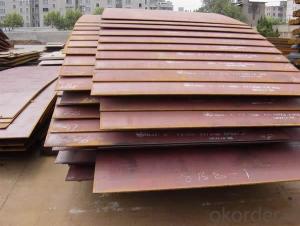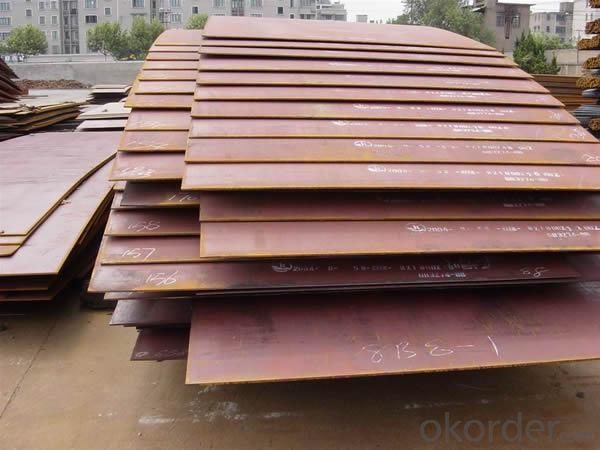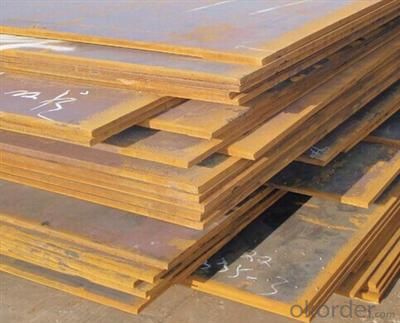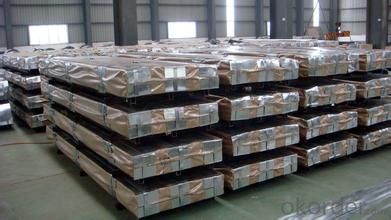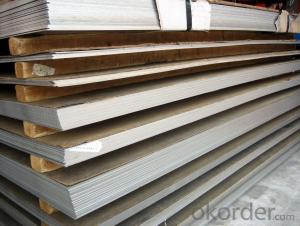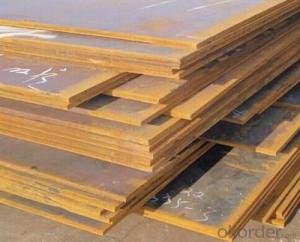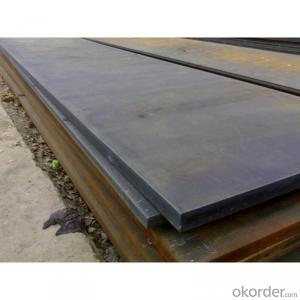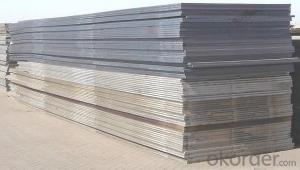Hot Rolled Steel Plate for Shipbuilding
- Loading Port:
- Qingdao
- Payment Terms:
- TT OR LC
- Min Order Qty:
- 1000 m.t.
- Supply Capability:
- 10000 m.t./month
OKorder Service Pledge
OKorder Financial Service
You Might Also Like
Specification
1. Product Description
The Billets as raw materials, through furnace heating, high-pressure water to reduce the phosphorus, then entering the roughing mill, cutting head, end, and then put into the finishing mill, cutting the edge, after the times of straightening, leveling and other finishing line treatment, and then cutting board or coil becomes the hot rolled steel sheet and hot rolled steel coil.
2. Main Features
Characteristics of hot rolled steel hot-rolled steel is a high temperature heating and rolled steel, hot rolled product has high strength, good toughness, easy to processing molding and good weldability and other excellent properties, which are widely used in ship, automobile, Bridges, buildings, machinery, pressure vessels and other manufacturing industries.
3. Excellent Product Image
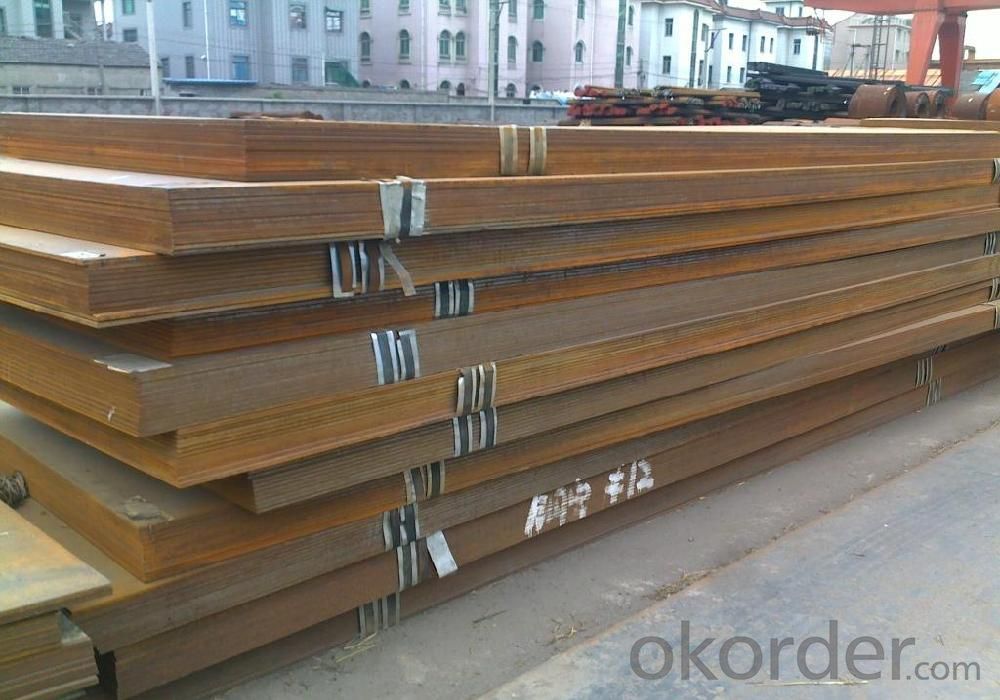
4. Application
Our hot-rolled steel coil and sheet are applied to a wide range of uses such as automobile, electrical appliance, machinery manufacturing, container manufacturing, shipbuilding, bridge, pipeline, and receive high acclaim from our customers for its excellent quality.
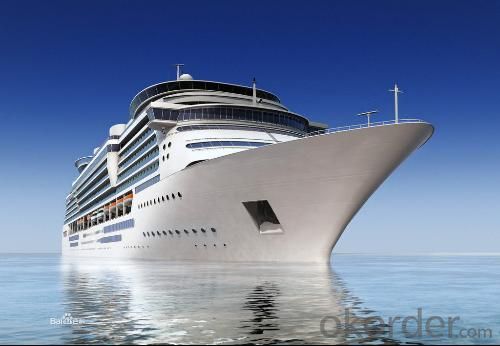
5. FAQ
1.Q: Do you have attended any exhibition?
A: We almost go to Canton Fair and Overseas Exhibitions every year.
2. Q: How to guarantee the quality of the products?
A: We have established the international advanced quality management system,every link from raw material to final product we have strict quality test;We resolutely put an end to unqualified products flowing into the market. At the same time, we will provide necessary follow-up service assurance.
3. Q: How long can we receive the product after purchase?
A: Usually within thirty working days after receiving buyer’s advance payment or LC. We will arrange the factory manufacturing as soon as possible. The cargo readiness usually takes 15-25 days, but the shipment will depend on the vessel situation.
Why choose us?
Pre-sale Service
1. Sample can be offered with sample charge and courier fee by buyer's side.
2. We have full stock,and can deliver within short time.Many styles for your choices.
3. OEM and ODM order are accepted, Any kind of logo printing or design are available.
4. Good Quality + Factory Price + Quick Response + Reliable Service, is what we are trying best to offer you
5. All of our products are produce by our professional workman and we have our high-work-effect foreign trust-worthy sales team.
6. We have 18 years' experience of design, manufacture and sell lingerie, we cherish every order from our honor.
After you choose
1. Count the most efficient shipping cost and make invoice to you at once.
2. Check quality again, then send out to you at 1-2 working day after your payment.
3. Email you the tracking no, and help to chase the parcels until it arrive you.
- Q: What are the advantages of using steel sheets in automotive manufacturing?
- There are several advantages of using steel sheets in automotive manufacturing. Firstly, steel sheets offer high strength and durability, making them suitable for withstanding heavy loads and impacts. This enhances the overall safety of the vehicle and provides protection to the occupants. Secondly, steel sheets can be easily molded and shaped into various complex designs, allowing for greater design flexibility in car manufacturing. Additionally, steel sheets have excellent corrosion resistance, ensuring the longevity of the vehicle and reducing maintenance costs. Lastly, steel sheets are cost-effective compared to alternative materials, making them a preferred choice for mass production in the automotive industry.
- Q: Are steel sheets suitable for oil and gas pipelines?
- Yes, steel sheets are suitable for oil and gas pipelines. Steel is a strong and durable material that can withstand high pressure and extreme temperatures, making it an ideal choice for pipelines that transport oil and gas over long distances. Additionally, steel sheets can be easily welded together to create a continuous pipeline, ensuring a reliable and leak-free transportation system.
- Q: How are steel sheets protected from rust and corrosion?
- Steel sheets are protected from rust and corrosion through various methods and coatings. One common method is the application of a protective layer called galvanized coating. This involves immersing the steel sheets in a bath of molten zinc, which creates a barrier between the steel and the surrounding environment. The zinc coating acts as a sacrificial anode, meaning that it corrodes first before the steel does. This sacrificial protection prevents rust and corrosion from reaching the steel surface. Another method of protection is through the application of organic coatings such as paint. These coatings provide a physical barrier between the steel and the external environment, preventing moisture and other corrosive elements from coming into contact with the metal. The paint can be applied using various techniques, including spray, roll, or electrostatic deposition. In addition to galvanized coatings and paint, steel sheets can also be protected through the use of other coatings such as epoxy or polyurethane. These coatings provide enhanced protection against corrosion, especially in harsh environments or when the steel sheets are exposed to chemicals or abrasive materials. Regular maintenance and inspections are also crucial in preventing rust and corrosion on steel sheets. This includes cleaning the surface, removing any debris or contaminants, and repairing any damaged or worn-out coatings. By following these preventive measures, steel sheets can remain protected and maintain their structural integrity for a longer lifespan.
- Q: How can steel plates with a thickness of 1MM be welded?
- The seam is also called the wheel welding equipment for the production, mainly uses fuel exhaust pipe seal. The principle is similar to that of spot welding. The difference is that the output current is uninterrupted.
- Q: Is galvanized iron sheet the same as galvanized steel sheet? solve
- The same thing is done to slow down the rate of oxidation. Because the zinc is more active than the iron, the zinc first responds, the zinc reaction is finished, iron should. Thereby slowing down its oxidation.
- Q: Can steel sheets be used for electrical conductivity?
- No, steel sheets are not typically used for electrical conductivity as they are not good conductors of electricity.
- Q: Are steel sheets suitable for food processing facilities?
- Yes, steel sheets are highly suitable for food processing facilities. Steel is a preferred material for food processing due to its numerous beneficial properties. Firstly, steel sheets are non-porous, meaning they do not absorb or retain moisture, bacteria, or odors, making them highly hygienic. This characteristic prevents the growth of bacteria and minimizes the risk of contamination, ensuring the safety and quality of the food being processed. Secondly, steel sheets are easy to clean and maintain. They can withstand frequent cleaning and sanitization procedures without corroding or degrading. Stainless steel, in particular, is resistant to corrosion, rust, and staining, making it an ideal choice for food processing facilities where cleanliness is of utmost importance. Furthermore, steel sheets have excellent durability and strength, ensuring longevity and reliability in food processing operations. They can withstand heavy use, high temperatures, and mechanical stresses that are common in food processing facilities. Steel sheets also have a high melting point, making them fire-resistant, which is crucial for the safety of the facility. Additionally, steel sheets are versatile and can be fabricated into various shapes and sizes to suit the specific needs of food processing facilities. They can be used for walls, floors, work surfaces, storage units, and equipment, providing a seamless and integrated solution for the facility's infrastructure. In summary, steel sheets are highly suitable for food processing facilities due to their hygienic properties, ease of cleaning, durability, and versatility. They contribute to maintaining a safe and sanitary environment, which is essential for the production of high-quality and uncontaminated food products.
- Q: What is the typical thickness tolerance for steel sheets?
- The steel sheet thickness tolerance can vary depending on the specific industry and application requirements. Different industries or applications may have more stringent tolerance requirements, especially when precision is crucial. In such cases, the tolerance may be tighter. Specialized steel products or specific customer requirements may also lead to different tolerance specifications. Manufacturers employ strict quality control measures to ensure compliance with the desired thickness tolerance. These measures include precise calibration of equipment, regular inspection of raw materials, and comprehensive testing procedures. This helps maintain the integrity and reliability of steel sheets for various applications in industries such as automotive, construction, manufacturing, and more.
- Q: How do steel sheets compare to other materials in terms of durability?
- Steel sheets are highly durable compared to other materials. They possess excellent strength, resistance to impact, and are less prone to wear and tear. Additionally, steel sheets have a high corrosion resistance, making them a reliable choice for long-lasting applications.
- Q: Can steel sheets be used in aerospace applications?
- Yes, steel sheets can be used in aerospace applications. While steel is not as commonly used as other materials like aluminum or titanium in aerospace, it can still be employed in certain specific applications such as structural components or engine parts where its high strength, durability, and resistance to extreme temperatures are beneficial.
Send your message to us
Hot Rolled Steel Plate for Shipbuilding
- Loading Port:
- Qingdao
- Payment Terms:
- TT OR LC
- Min Order Qty:
- 1000 m.t.
- Supply Capability:
- 10000 m.t./month
OKorder Service Pledge
OKorder Financial Service
Similar products
Hot products
Hot Searches
Related keywords
